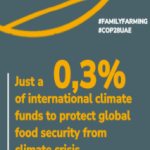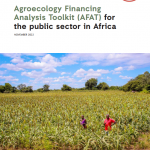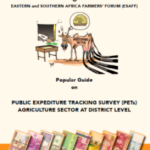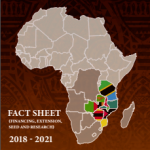ESAFF Widens Doors for Youth Participation!
10/09/2013
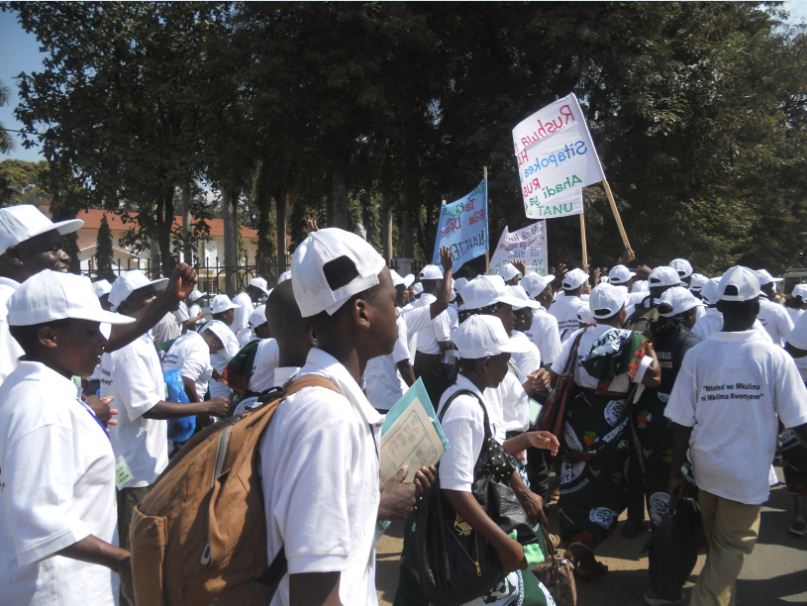
ESAFF has embarked on a mission that will finally see more youths in the region participate, not only in Agriculture, but also in leadership of farmer organizations and groups in the Eastern and Southern Africa region from grassroots to regional level.
The move comes after a recent Study commissioned by the Eastern and Southern Africa Farmers’ Forum (ESAFF) on “Youth Involvement in Agriculture and Farmer Organizations” revealed that youth involvement in Agriculture and Farmer Organizations is still very trivial despite the fact it is key in ensuring Food Security, Employment and sustainable development in rural Africa.
Demographics
Quoting different sources, the study report, which starts by telling the demographics in Africa, shows that Africa boasts the fastest-growing and most youthful population in the world – that is according to the African Development Bank, 2012. Over 40 per cent are under the age of 15 years, and 20 per cent (about 200 million) are between the ages of 15 and 24. The report also shows that the youth make up 65% of the labor force in agriculture whereas 70% of them live in the rural areas in Africa.
The statistics also show that there are a lot of incidences of poverty among the African youths. For example, according to the World Bank survey-based harmonized indicators, in Uganda, incidence of poverty among youths aged between 15 and 24 is 93.8%, Zambia 86.3%, Mozambique 75.4%, Ethiopia 70.0%, Malawi 66.3% and Kenya 54.5%. This is really shocking news.
The study was intended to find out how the youths participate in agricultural activities and their involvement in farmer organizations in the Eastern and Southern Africa (ESA) region; outline strategies that small scale youth farmers can use to influence policies and promote ecological agriculture and examine how youths can participate in ESAFF work and take position in the leadership structures.
What are the Challenges?
The report reveals that, despite the huge potential that Africa has in its youths, especially in ensuring food security through small scale farming, there are still many obstacles and challenges that will have to be addressed and overcome first, before the benefits can be realized.
Some of the challenges identified in the study include the School-to-work transition whereby the school curricula have generally tended to alienate the youth from careers in agriculture by not fully orienting them early and deep enough into it; Limited Access to productive land as land is traditionally bestowed in the ownership of heads of family (who are mainly not youths); Low returns on time and input investments and seasonality of incomes from agricultural activities.
Other challenges identified by the study are Lack of sufficient innovations in the sector; low investment in the necessary infrastructure such as roads and processing plants and technologies; underutilization of ICT for production and market information; absence of youth departments in national farmer federations to address the peculiar issues affecting the youth; unwillingness of the educated youth to engage in agriculture and the youths’ wrong attitude and perceptions on agriculture. One earlier study in Kenya indicated that some youths view agriculture “as a form of punishment and not as an enterprise that can provide income”.
ESAFF’s Initiative
In responding to the youth needs and recommendations made by the study and other consultations, ESAFF has first developed a Youth Policy. Through this policy, among other things, ESAFF will be working to create space for youth participation in its Constitution; conduct Leadership training and Capacity Building for youths and Conduct a joint review process by senior leadership to identify opportunities for youth inclusion within the organizations.
Other measures by ESAFF will are to include Develop a plan to involve young people in the governance of the organization in a structured way; integrate youth engagement into the strategic planning of your organization; Employ more young staff and Allocating resources to youth engagement.
In 2014, ESAFF will organize a Youth Congress that will bring together youths from member countries to deliberate on how youths are currently involving themselves and being involved by other stakeholders and set a clear way forward on how they will ensure that they will be making a more meaningful participation in Agriculture and in leading farmer organizations.
This Congress will go hand in hand with ESAFF’s Triennial General Summit (TGS) that will, among others, make constitutional amendments to create more space for youth participation in ESAFF’s leadership from grassroots to regional level.
The full report will be released soon and made available through ESAFF’s website (www.esaff.org) and through other mediums.
For more information, email: esaff@esaff.org

















